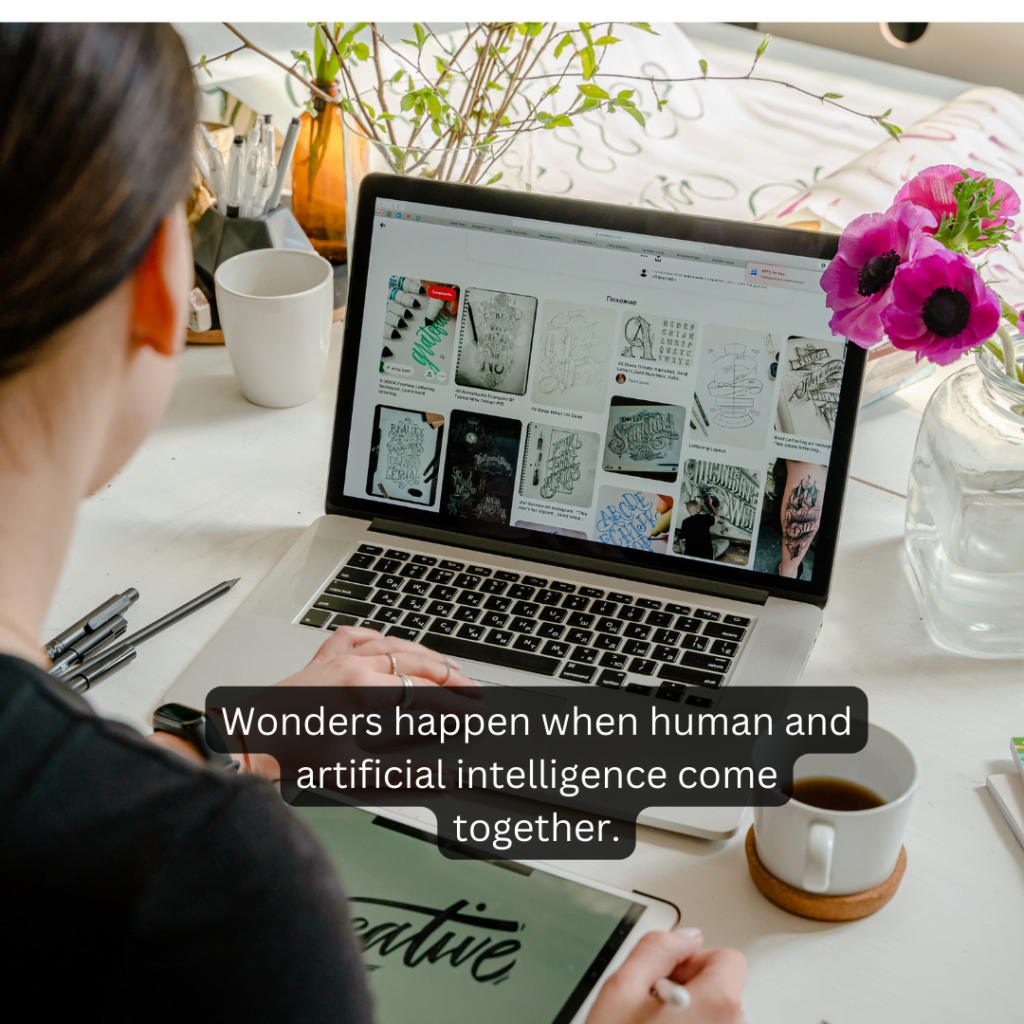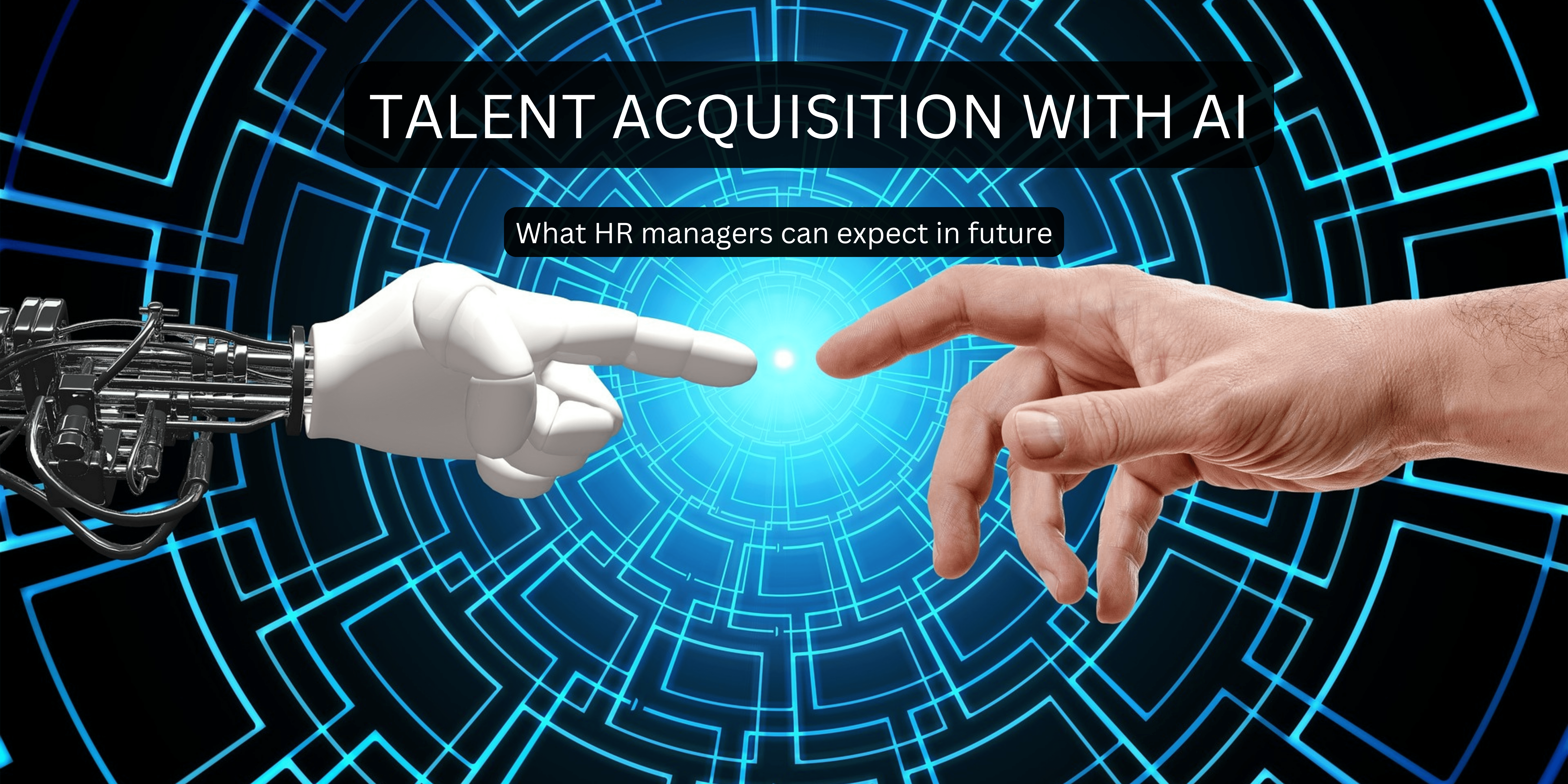Artificial Intelligence (AI) has proved to be a milestone in the evolution of electronic computing. The world is on the cusp of a new age because of AI. Driven by powerful new techniques, AI is now able to perceive and understand human behavior better than ever before. With every passing day AI is gaining more popularity due to its enormous contribution in optimizing business operations and technological advancement. Powered with Data driven self learning, AI is also fueling Human Resource Management and Talent Acquisition like any other field.
One can easily see signs of AI in HR with hiring managers using machine learning algorithms to make their services more personalized for employees, job applicants, and hiring managers.
In this blog post, we’ll explore the meaning of Artificial Intelligence, the difference between conventional programming and Artificial Intelligence and finally what opportunities lie for recruiters in talent acquisition and management space, how various companies are leveraging it today and where we might see it heading tomorrow. Let’s get started…

What is Artificial Intelligence and how is it different from conventional computing?
AI is the idea of machines being able to engage in human-like behavior. This can include everything from computer vision, to natural language processing, to machine learning. A computer vision system can see images the same way a human can. A natural language processing system can understand the nuances of human language like what’s implied in a sentiment or the intended meaning of a specific phrase. And a machine learning model can learn from data to make predictions about future outcomes. Artificial intelligence is not a monolithic thing that you can turn on and off; it’s a broad set of technologies that are all overlapping and impacting each other.
Now how is it different from conventional computing and programming? In conventional computing you are the player. You write a program which acquires a set of input and gets executed to produce a desired meaningful output. If the output is not meaningful, you analyze the errors to attune your program. While in Artificial intelligence, you train the machine to do the tasks on its own using machine learning algorithms fed with the data.
Talent Acquisition with AI
For many years, artificial intelligence has been largely focused on automating manual labor. It has been responsible for transforming many industries and has proven to be especially effective at completing complex and repetitive tasks. Because of this, AI has often been thought of as a threat to human jobs, particularly in industries like finance and healthcare where it is already being applied to areas like data entry and diagnostics. But the reality is that AI is about so much more. It is a tool for augmenting human capabilities and extending human capacities. It is designed to work alongside people rather than replace them. And as a result, it will actually create many more jobs in the long-term.
There are wide-ranging tools that can be helpful to HR generalists specifically in Talent acquisition and management:
1. AI Job Description Generator
Presently, an AI Job Description Generator powered by natural language processing technology is capable of generating consistent, high-quality content without plagiarism. As a recruiter you can generate fresh and coherent content as per your requirement and that too in an unbiased tone. The technology helps recruiters create robust and thorough job descriptions.
2. AI Resume Parser
It takes time to review hundreds of resumes, and it might not even be worthwhile sometimes. AI Resume Parsing is a practice of using software products for sorting and storing applicant’s resumes. The AI powered Resume Parsers uses Deep Learning to extract information with context, from the most complex resumes and enable you to hire the most qualified applicants. Depending on the Parsers you are using, you can also assign weightage to your preferred parameters such as skills, education, experience and so forth. An AI powered resume parser can be tremendously rewarding to you in your talent acquisition journey.
3. Recruitment Chatbots
A recruitment chatbot powered by artificial intelligence (AI) can help save recruiters a lot of time. Reaching out to candidates one by one and asking questions such as notice period, intent to relocate, salary expectations is expensive, tedious and leads to inconsistent responses. Recruitment chatbots are interactive, scalable and highly customizable tools that can be used to improve overall recruitment experience.
4. Automated Interview Scheduling
Automated interview scheduling empowers the hiring team to swiftly manage interviews, thus helping reduce the stress on the recruiters and makes the interview process hazel free and breezy. An automated interview scheduler can take care of calendar blocking, scheduling and rescheduling of interviews, and meeting link distribution to the applicants.
5. AI based Video Interviewing
The use of video technology was not new by any means but the pandemic gave tremendous impetus to remote hiring strategies such as video interviewing. Video interviewing transcends geographic boundaries and hence saves cost and time. AI driven video interviewing collects thousands of data-points on the candidate during a single video interview augmenting your Hiring decision making with appropriate insights into each candidate’s job-related competencies. Not just that, the tools can also help you gauge the spoken skills of the candidates, prepare pre-employment assessments and interview questions, and automated proctoring to track dubious behavior of the candidates. Interviewing is indispensable to hiring for any role and assessments based only on human interaction may not always be accurate and objective. AI based Video Interviewing is therefore gaining traction.
Conclusion
AI is a transformative technology that will have a significant impact on many industries. For HR, this will mean the transformation of talent acquisition from a manual process to one that is largely automated and data-driven. The future of HR will see a blurring of the lines between HR, technology, and business operations. This will enable HR to support business objectives more effectively and efficiently by operating at scale and using data. This will be achieved through the leveraging of AI-enabled technologies like computer vision, natural language processing, and machine learning.
Do you know that Protouch is offering an innovative HR analytics course in which you will learn to source, analyze, and visualize HR data to inform decisions and recommendations? You will strengthen your analytical acumen to make decisions through analysis and storytelling. Through the application of data analytics, you will be positioned to examine common HR challenges. It will help you determine the business impact and return on investment associated with HR initiatives. By the end of this program, you will have developed the strategic and systematic measures necessary to excel in HR analytics.
Call now at 8800005599 to discuss your HR Certification or visit www.protouchpro.com.





Leave a Reply